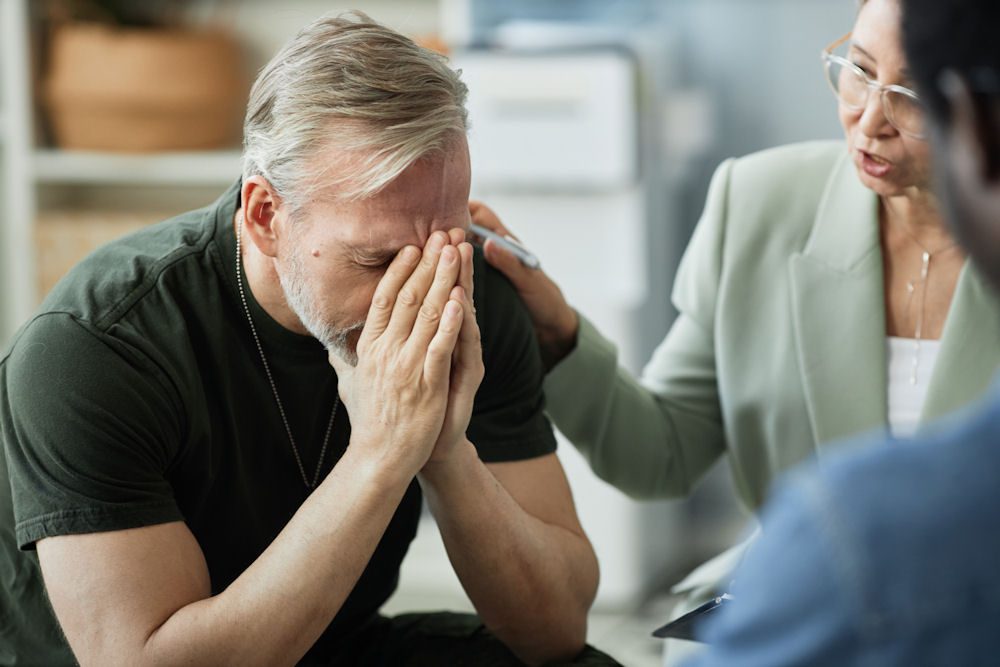Though many aspects of PTSS vs PTSD coincide, they are separate mental health concerns. That’s why it’s important to know where PTSS ends and PTSD begins. Knowing the difference and how to treat these conditions gives you the necessary enlightenment to approach your condition proactively. Here are all the details you need to know about PTSS vs PTSD and how to combat these mental health conditions.
What are the Similarities Between PTSS and PTSD?
The relationship between PTSS and PTSD is very similar in many respects. Post-traumatic stress syndrome and post-traumatic stress disorders derive from all of the same underlying traumas. The two are so similar that it can be very easy to mistake them for one another. Correlatively, this is why many physicians fail to accurately diagnose PTSD and distinguish between PTSS vs PTSD. Thus, top-quality mental condition assessments and scans should be your utmost priority. Thankfully, we have highly-trained mental health assessment specialists who can accurately diagnose your condition.
What is the Difference Between PTSD and PTSS?
The most obvious discrepancy between PTSS and PTSD is the fact that PTSS is not an official mental health disorder. While both are post-traumatic stresses stemming from traumatic experiences, PTSS is the predecessor that leads to full-blown PTSD. At the PTSS stage, PTSD is still preventable. However, once PTSD is acquired, it becomes a long-term health condition that requires ongoing treatment. To discover if the source of your post-traumatic symptoms is PTSS vs PTSD, speak to an assessment specialist for an accurate diagnosis.
What is PTSS?

As mentioned earlier, PTSS is the initial response to personal hardships like sexual abuse, car accidents, or other life grievances. PTSS harbors many of the same symptoms and underlying causes as PTSD but without the defining permanency associated with long-term PTSD symptoms. People often get misdiagnosed with PTSD when they actually have PTSS, which requires a different treatment approach. Naturally, people with post-traumatic stress syndrome automatically have a much higher risk and likelihood of developing PTSD. However, if met with swift action, PTSS sufferers can fend off full-blown PTSD with proper diagnosis and treatment.
What is PTSD?
PTSD, or post-traumatic stress disorder, like PTSS, is a mental condition that has profound effects on one’s mental psyche. These effects range from adverse behavioral, thought, and mood effects. PTSD is also considered the long-term form or mutation of underlying PTSS. Once PTSD is acquired, a long-term approach to symptom management and preventative PTSD episode measures become necessary for wellness maintenance. Rest assured, whether you have PTSS or PTSD, your mental well-being is in the best of hands at The Lovett Center.
What Specifically Causes PTSS and PTSD?
Since the root causes of PTSS and PTSD are directly correlative, they share many of the same underlying issues. Here are just a few of the many causes of both conditions.
Believe it or not, health problems can also inflict PTSD or PTSS. This is caused as a result of shock, anxiety, and other worries. These traumas can exacerbate mental afflictions due to the compounding seriousness of physical health problems in conjunction with post-traumatic stress. We understand the discouragement associated with worrisome health issues, especially of the life-threatening variety.
Being in a significant car accident, both life-threatening and non-life-threatening, sends traumatic ripples throughout one’s psyche. Unbeknownst to many who endure such a trauma, this could inflict PTSS or PTSD, depending on how your mind processes the incident. That’s why it’s important to get a mental assessment following such an occurrence to err on the side of caution. Most individuals struggle with mental health problems after traumatic experiences without even realizing it.
Losing someone close to you always has a significant impact on anybody. The emotional struggles associated with such heartache affect common functions of our daily life from job duties to even simple daily tasks. If not processed and dealt with appropriately, it can lead to long-term mental health battles. This does not mean you are weak. The strongest of people deal with mental health conditions stemming from losing a close friend or family member.
Unfortunately, physical abuse of any form is one of the most common causes of mental trauma. What’s worse is that many who suffer mental, physical, or sexual abuse often keep these abuses bottled up. This means there may be many cases who also have undiagnosed PTSS or PTSD. Abuse is very serious, and its associated mental harms should be treated equally earnestly. If you or someone you know is suffering from any form of abuse, don’t delay. Get help now.
One of the top causes of PTSD stems from people’s experiences in military service. Survivor’s guilt, combat experiences, near-death experiences, and other military-related traumas are just some of the most common causes of military service-related PTSD. This form of PTSD consists of bouts of depression, unfounded anger, suicidal tendencies, and flashbacks, among other mental impacts. Though individuals with military service PTSD may not fully heal, there are treatment programs that can help you manage symptoms.
Unfortunately, bullying, whether at the hands of a guardian or peers, has become integrated into our society. The sad part is that bullying is often not taken seriously. But the fact remains that bully-related public shame, mental and physical distress, and utter discouragement can inflict post-traumatic stress. It can be so severe that it borders the same category of mental and physical abuse. If you or someone you know is getting bullied, don’t overlook the potential mental impacts of these occurrences.
What are the Best Treatment Programs for PTSS and PTSD?

Program efficacy is dependent on individualized factors such as medical history, reaction to different treatments, and other personal variables. Here are the most effective treatment programs with those factors in mind.
Many people respond very well to individual counseling or treatment due to the extra personalized nature of these sessions. This allows specialists to get to know the source of your PTSS or PTSD. Once these roots are identified, it empowers your physician to help you heal from the underlying trauma. This is achieved by personalizing your healing process through individualized treatment programs. Learn more about our individualized treatment programs by reaching out to our caring receptionists now.
Group therapy is a great place to meet other individuals who are facing the same issues you are. This is important because common symptoms of PTSD and PTSS are loneliness and depression. Meeting others with common interests and mental health struggles is an ideal method to encourage you while fending off loneliness. Enroll in group treatment to begin the healing process and establish a strong support structure today.
Cognitive behavioral therapy is the most therapeutic method of breaking harmful PTSS and PTSD thought cycles. Specialists effectively weaponize CBT to break negative thought patterns and replace them with positive thought habits. In essence, this replaces your former thought processes with impulsive positive mental reinforcement. This revolutionary treatment is reported to change lives en route to helping patients have a new outlook on life and mental health.
Our outpatient treatment programs afford patients maximum schedule flexibility while maintaining high-quality mental care. This means you can maintain full-time employment and a social life while coordinating full-time treatment at home. In this treatment, you still have full access to our healing tools and complete therapist attentiveness. The only difference is that you get all of these privileges within the comfort of your own home at a time that fits your schedule.
For individuals who need more around-the-clock mental health care, a partial hospitalization program is a great option. This provides the most hands-on attentiveness from treatment specialists at a care facility in a free and fun-loving atmosphere. Here, you’ll receive top-notch training methods, treatments, attentiveness, and enjoyable activities to make your healing journey a memorable one.
In some doctor-approved circumstances, medication-assisted treatment may be utilized to treat mental health conditions. Prescription-based treatment is closely monitored and administered at the hands of a trained professional. Medications for MAT are required to meet strict approval standards based on medical scans and doctoral assessments. If approved, these short-term medications can go a long way in helping you achieve and sustain long-term independent mental fortitude.
Complex matters of post-traumatic stress conditions necessitate full-spectrum family understanding. That’s why our family therapy in Houston, Texas, trains all family members to be the mental support system everyone needs to heal. We help the family heal together through strengthening bonds, broadening post-traumatic stress understanding, and training. It’s vital to bear in mind that when one family member faces a battle, the whole family faces it together. Family unity bears the power to give any mental health sufferer the power to continue.
The Lovett Center Offers Trauma-Informed Therapy to Help You
You can finally achieve the mental peace of mind you’ve longed for by reaching out to our empathetic staff. We can equip you with all the information and self-applicable training you need to reinforce your mental fortitude independently. We’ll show you that mental wellness improvement and perseverance is not only possible, it’s probable with the right personalized treatment.




